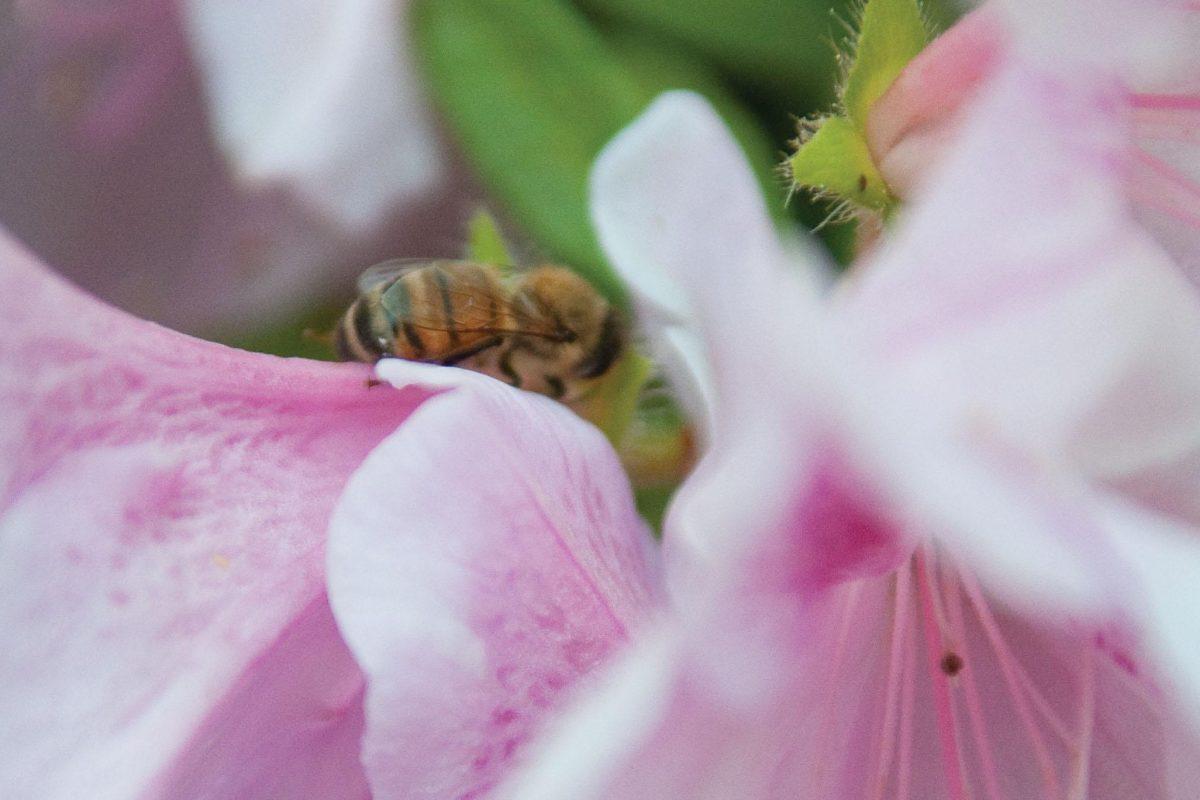Spring is here once again, and with it comes beautiful flowers and dreaded allergies.
Students, professors, faculty and visitors enjoy a colorful array of spring flowers in the Quad and around campus. These same plants trouble allergy sufferers.
William “Buzzy” Heroman is the president and CEO of Billy Heroman’s Flowerland, which he said has introduced flowers on campus. Heroman said allergies flare up because of a variety of plants and personal cues.
“Every single flower has pollen,” Heroman said. “Different ones trigger different people.”
Heroman also said some allergies aren’t caused by pollen. Certain flowers may have fragrances that irritate some people, he said.
Many types of pollen from various plants are circulating campus, and allergy-prone people may be affected by multiple types, Heroman said.
Kristin Sonnier, biology junior, said she has been suffering from allergies for the past four or five years. She takes Alavert to relieve her symptoms, and said it “works until springtime when [the pollen] gets really bad.”
Temperatures influence the blooming cycle, according to Heroman.
Azaleas, the white and pink flowers currently blooming in the Quad, have a relatively low pollen content, Heroman said.
Heroman also said many trees are budding. As the University has more than 1,200 live oak trees, these could be causing allergies.
Another irritant for many Baton Rouge locals is ragweed, Heroman said.
Many allergies can be prevented by using a type of drug called an antihistamine, according to Brent Myers, doctoral candidate on rotation at the Student Health Center pharmacy.
When everything is in bloom, pollen can get irritate skin or can be inhaled which can cause watery, itchy eyes and mucus, according to Myers.
“Antihistamines dry those things out,” Myers said.
There are two types of antihistamines, Myers said — first generation and second generation.
A first generation antihistamine, such as Benadryl, typically works better and faster but can cause drowsiness, Myers said.
A second generation antihistamine may not work as fast or be as strong, but doesn’t create side effects, Myers said.
Myers recommends seasonal allergy sufferers use a second generation antihistamine to relieve their allergies, like Claritin, Allegra and Zyrtec, which are available without a prescription.
Spring takes its toll on those with allergies
March 23, 2011







